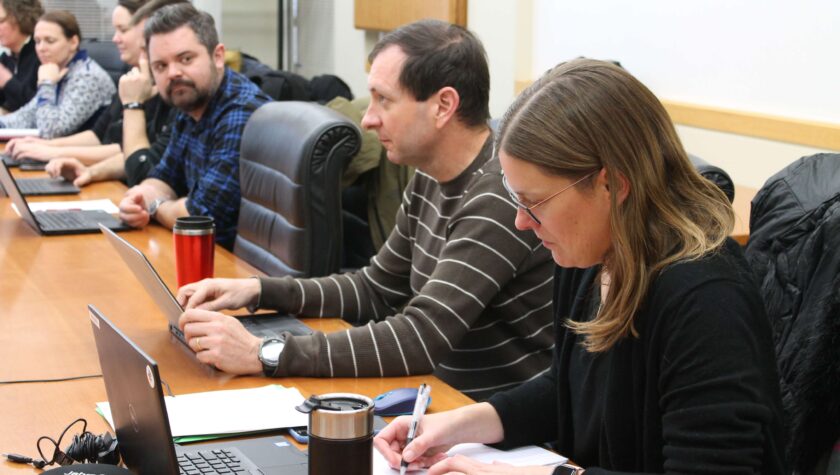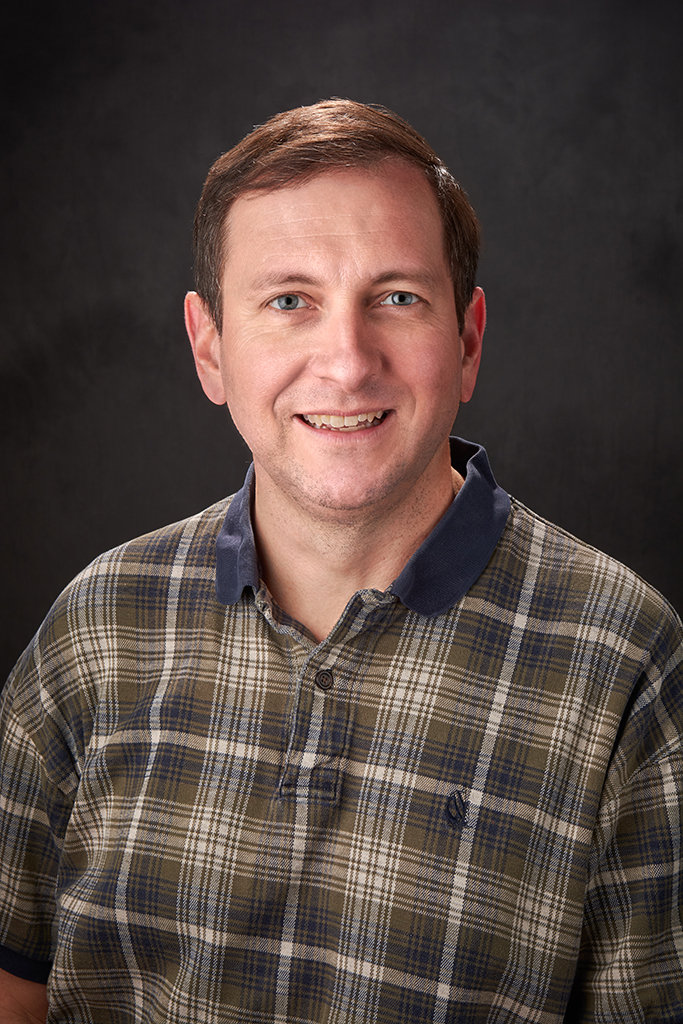
10
December

An international partnership with USAID funding, the School of Pharmacy launches online drug development courses in Kenya, South Africa, and Zimbabwe
By Logan Underwood
Africa accounts for two-thirds of new HIV infections across the globe, with over 25 million people living with HIV in the region, according to the World Health Organization. A new international partnership involving courses from University of Wisconsin–Madison’s School of Pharmacy is seeking to address the epidemic by fueling research and development.
The partnership, led by Professor Eric Buxton, chair of the School’s Division of Pharmacy Professional Development, connects the School of Pharmacy with MATRIX, a five-year program funded by the United States Agency for International Development (USAID). MATRIX is aimed at developing HIV prevention and treatment products for women on a global scale, with a focus on Kenya, South Africa, and Zimbabwe.
“We are hopefully going to help these scholars develop new HIV prophylactics and therapeutics and help quality of life in Africa and the rest of the world.”
—Eric Buxton
The MATRIX team, is aiming to upskill the early to mid-career African scientists, approached several universities while looking for help, and they decided that the UW–Madison School of Pharmacy could best provide the infrastructure, customization, and flexibility they needed.
“We are hopefully going to help these scholars develop new HIV prophylactics and therapeutics and help quality of life in Africa and the rest of the world,” says Buxton.
Tailored, flexible education
It was important to the MATRIX team that their partner on the project was able to provide content that would cater to the African scientists working in the drug development field.
Buxton and the School of Pharmacy were able to provide the infrastructure they needed by using pre-existing courses and tailoring them to the specific needs of the program. The courses, which are geared toward scientists or students already working in the pharmaceutical field, provide essential skills and training that is not very accessible in the region.
Starting in early 2022, Buxton and MATRIX collaborators carefully picked courses that would fill in the knowledge gaps that the team had found through their research, which were most prevalent in stages before actual clinical testing.

They chose three courses from the School of Pharmacy’s Applied Drug Development masters’ degree program that heavily focus on the early formulation stage of the drug development product process.
While Buxton and the team maintained the infrastructure of the pre-existing courses, a great deal was tailored to fit the program’s needs. The courses were translated to a free non-credit format, but the scholars enrolled still have access to professors’ feedback as well as quizzes to test their knowledge. Additionally, content was modified to focus on issues and regulations that were specific to drug development in Africa.
“A lot of the material is the same,” explains Buxton, “and actually for some of the courses the same faculty are still interacting with the students.”
After much preparation, three online courses launched in early October 2023. The courses, which follow a semester format, are designed to be offered once a year. Scholars can enroll in one course per semester, completing as many courses as they would like.
The first course of the three offered is a general drug development course, meant to give a general overview of the development process. The second, a course on the regulatory process, was substantially changed to accommodate the African regulations that the scholars would be more likely to interact with, instead of focusing on the U.S Food and Drug Administration.
“We worked with our contacts to find some African regulatory experts,” describes Buxton. “Each country has its own specific requirements and we wanted to prepare these scholars for success in their own countries.”
“This project really strikes a chord with me because it’s part of the Wisconsin Idea, on a global scale.”
—Eric Buxton
The third and final course offered this fall focuses on data analysis, a skill Buxton believes is essential for the scholars’ career advancement. The material goes in-depth on how to graphically represent data, analyze large data sets, and use logic to troubleshoot common analytical issues.
Later this year, they will launch a fourth course, focused on drug discovery. The partnership hopes to add more courses as the project continues.
Sustainable success
Although the MATRIX project is limited to five years, Buxton hopes to keep the courses available for the African scientists indefinitely to advance the countries’ efforts to prevent and treat HIV.
“I fully intend to keep doing this as long as possible,” says Buxton. “This project really strikes a chord with me because it’s part of the Wisconsin Idea, on a global scale.”
By providing the infrastructure for building essential skills in drug development, these courses are helping scholars to be better equipped to improve public health in Kenya, Zimbabwe, and South Africa.
“What makes me proud to be a Badger is the doing,” says Buxton. “I really believe it will be making a difference in the world.”






